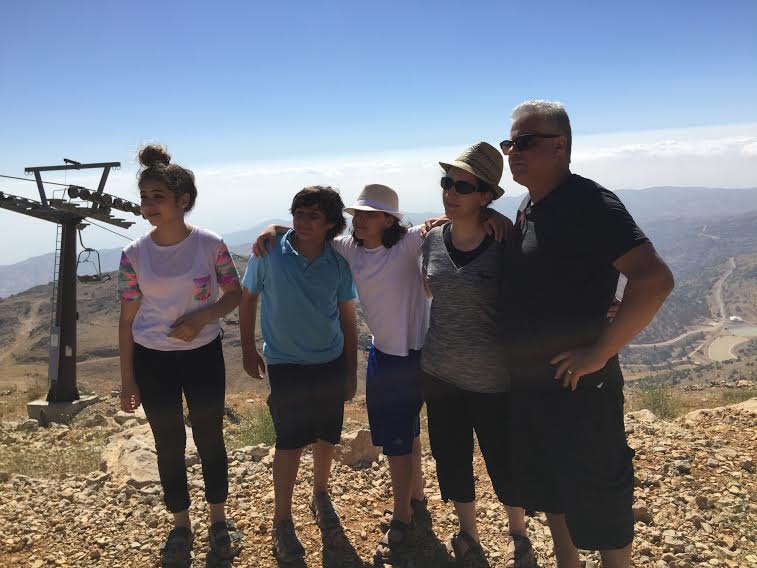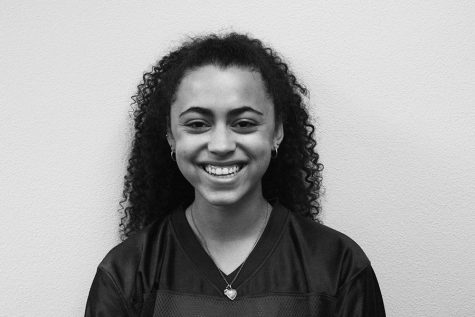Freshman faces Muslim stereotypes
Gaidah Azem chooses not to wear a hijab
Used with written permission from Duaa Azem
Freshman Gaidah Azem stands with her family near Jerusalem during their summer 2015 trip. Both Azem and her mother, Duaa Azem, do not wear a hijab.
April 19, 2016
When freshman Gaidah Azem first arrived in Jerusalem in the summer of 2015, many people in the local community stared at her — not because her makeup was messy, but because she was not wearing a hijab.
Azem said images often associated with the Muslim religion frustrate her.
“When I’m telling someone I’m Muslim, they’re like ‘but you’re showing your hair.’ That’s always an assumption that goes along with being Muslim,” Azem said.
Duaa Azem, Gaidah’s mother, also refrains from wearing a hijab. She said she encounters similar reactions as her daughter when discussing her religion.
“You can hear that from everybody around you, that Muslim ladies always wear hijabs; you hear that all the time,” Duaa Azem said.
Gaidah Azem said in Minnesota, she does not experience as much hate because it is more common to show your hair. However, during her time in Jerusalem this past summer, she said she felt more pressure.
“When you go to (Jerusalem), everyone is wearing (a hijab) and you do get judged for it because it’s such a huge part of the religion. Not only is it required, but it’s representing your religion,” Gaidah Azem said.
Duaa Azem said people often try to belittle her because she does not wear a headscarf.
“(Religious groups) always try to talk to me and they want me to feel I am less than them,” Duaa Azem said.
According to Duaa Azem, in elementary school, Gaidah Azem wore a hijab for a short time, but it was never mandatory.
“We never forced her to; we never said ‘you have to.’ Whenever she feels she wants to do that is her choice. I can’t force her to do it because I am not doing it,” Duaa Azem said.
Gaidah Azem said she understands the significance of hijabs and how they cause people to feel more included in the Muslim religion and culture.
“I definitely feel like I would be more religious if I wear the scarf, and it would connect me a little more to the Muslim culture. It has a lot of meaning to it, and like I said earlier is a big part of the religion. Wearing it definitely connects you more to the religion, which connects you more to the culture,” Gaidah Azem said
On the other hand, Duaa Azem said she does not feel disconnected from her religion because of her decision to not wear a hijab.
“We do practice religion at home. We do all the things, we do fasting, and going to the mosque, praying and a lot of things,” Duaa Azem said.
Gaidah Azem said she doesn’t feel the need to wear a hijab at this point in her life, because she has learned from her family that she can be religious without it.
“I don’t feel like I could wear it right now and, in my family they’re very religious. My mom doesn’t wear it but other than that she’s pretty religious,” Gaidah Azem said.




